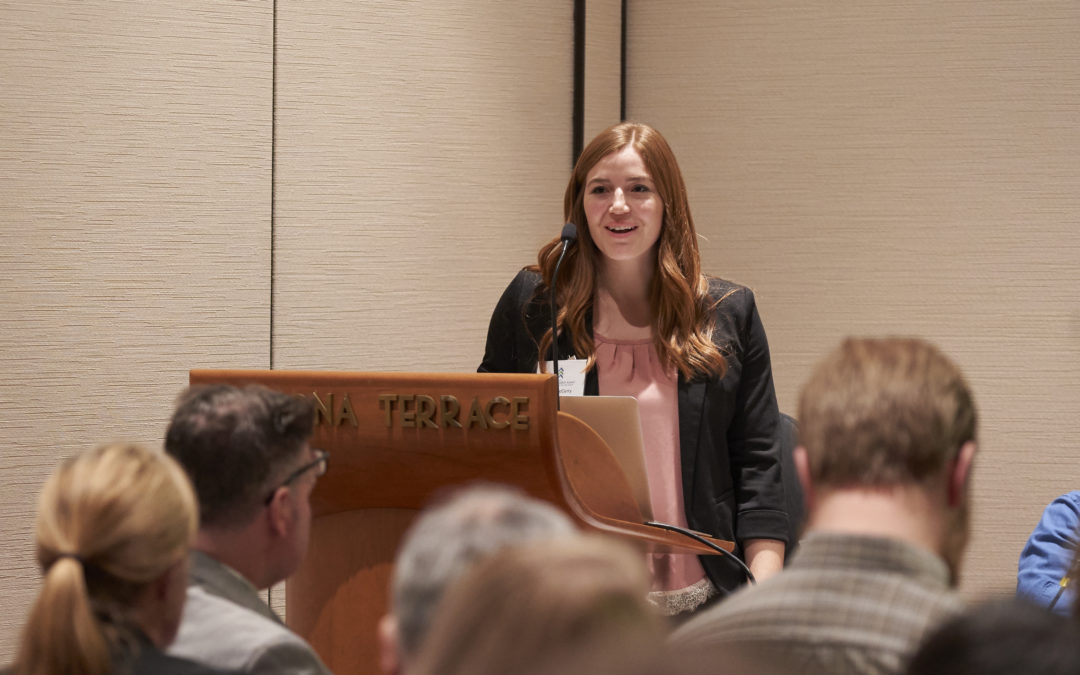January was a busy month bopping between energy summits. On January 17th we had our Renewable Energy Summit in Madison and January 24 – 25 the Wisconsin Academy of Sciences, Arts, and Letters held the Powering Local Leadership Summit in Appleton.
Both summits had electric vehicle panels, and both were awesome.
Renewable Energy Summit: Electric Vehicles
This was the first time we had an electric vehicle session at the Renewable Energy Summit. Our space ended up being standing room only so I’d say it was a success. We emphasized the benefits that electric vehicles provide, no matter what business you are in.
Dan Steinhart and Mike Cornell kicked off the presentations, representing Arch Electric EV, the recently incorporated subsidiary company of Arch Electric. Arch Electric EV will house their electric vehicle charging station business. Arch is primarily a solar photovoltaic (PV) installer that has recently been in contact with over 100 businesses to gain a better perspective on the market and demand for electric vehicle (EV) recharging infrastructure. Their motto is that PV + EV = Sustainable Transportation.
Becky Cooper from Bounce Milwaukee shared her family business’s experiences with pizza delivery electric vehicles. In addition to providing family-fun of all kinds, Bounce Milwaukee owns electric Leafs that they use to deliver pizzas. Their rooftop solar array and electric pizza ovens mean their pizzas are both made and delivered on sunshine. Bounce Milwaukee uses electric cars because they’re affordable, efficient, and provide a better customer experience, in addition to boosting their brand as an early adopter of clean energy technology!
We also heard from Mahanth Joishy about the City of Madison’s commitment to low emission transportation. The city currently owns 3 Chevy Bolts and acquired a grant to purchase 20 more in 2019 and 2020. Additionally, the city has a biodiesel pilot project, 6 hybrid police vehicles, anti-idling technology on ambulances, is working on specs for compressed natural gas (CNG) trucks, and is outfitting vehicles with GPS tracking to even further optimize routes and decrease fuel use.
This session was a really excellent exercise in seeing the various ways that electric transportation can benefit all different kinds of organizations. From companies already invested in the energy transition to local family-centric businesses, and even local governments, there’s a lot to be gained from electric transportation.
Check out the slides and audio to learn more.
Powering Local Leadership Summit: Preparing Your Community for Electric Transportation
The Powering Local Leadership session had a more focused goal: provide local leaders the tools to prepare their communities for the transition to electric transportation. I kicked things off with an overview of the myriad of benefits of electric vehicles (to name a few: cheaper to operate, no tailpipe pollution, quiet, fun to drive, and convenient to refuel).
Ashwat Narayanan from 1000 Friends of Wisconsin reiterated the point that electric vehicles can solve many problems. They are not, however, a magic bullet to solving all of our transportation issues. We have to prioritize people – bikers, bus riders, and car sharers – over actual cars.
Jeff Springer from Dairyland Power Cooperative emphasized that electric vehicles have both an awareness issue and a rural issue. We need to help electricity coops through the process of getting the word out about electric vehicles, transitioning their fleets, and installing charging stations in their area. Rural solutions are also necessary – pickup trucks, SUVs, and farm equipment – all of which is coming to the market soon.
Finally, Peter Skopec from WISPIRG gave hope that with sales at an all-time high, communities really do need to be preparing for thousands of electric vehicles on their streets soon. The charging infrastructure needs to be built out, especially for folks who live in multifamily units and urban areas without access to overnight charging.
The audience had great questions that ran the gamut from gas station interest in electrification (there is some interest), to Volkswagen Settlement Funding (a huge opportunity for building electric vehicle infrastructure), and if mechanics need additional training to work on electric cars (yes, we want mechanics to be comfortable working on these cars).
I learned a ton from moderating these panels! Thanks to the panelists for joining me, and thank you for reading about them here. For those of you who couldn’t make it, I hope you can join us next year!

